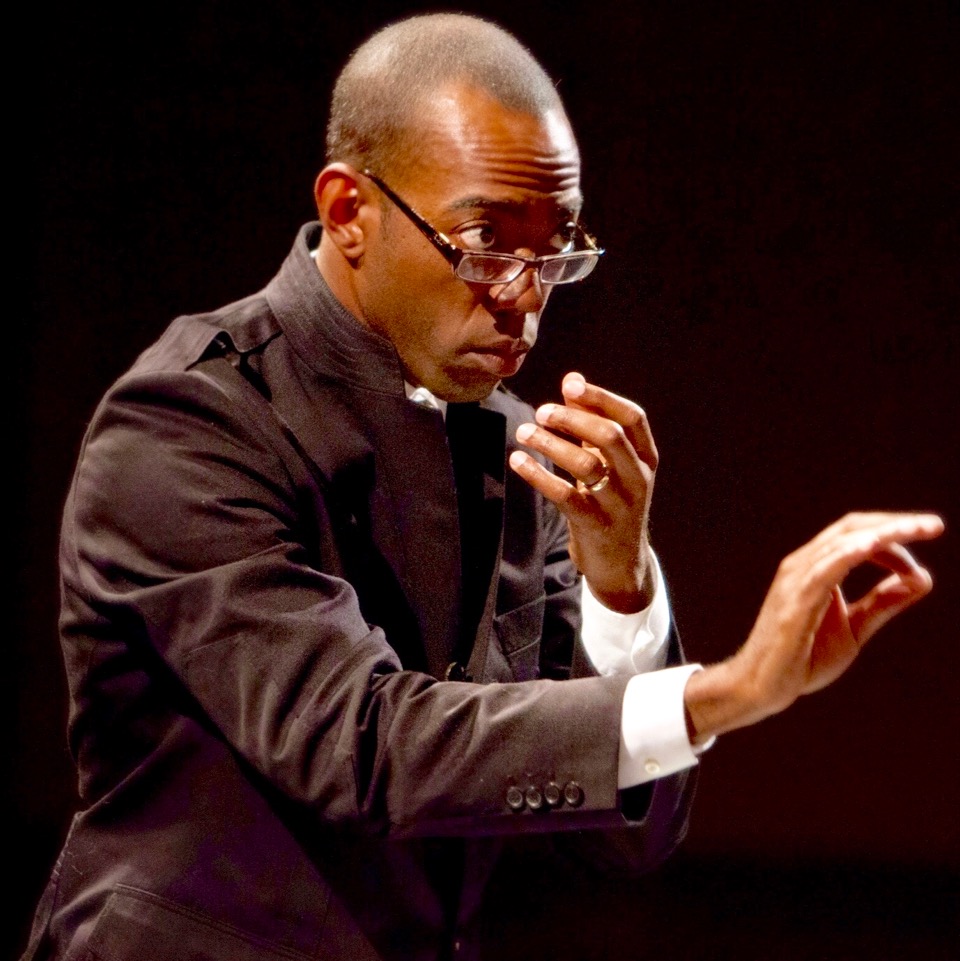Bonds cantata a highlight in Trecek-King’s admirable Cantata Singers program
The liturgical calendar may say it’s Advent, but nobody is going to fault the Cantata Singers for looking ahead to Epiphany.
“Of All Kings,” the group’s program presented Sunday afternoon at Cambridge’s First Church, did just that, with a set of pieces that focused on the visit of the Magi to the infant Jesus.
One of the program’s goals, noted guest conductor Anthony Trecek-King–who is also a finalist for the Singers’ open music directorship–was to consider this familiar story from a variety of perspectives.
The most striking viewpoint came courtesy of Margaret Bonds’ The Ballad of the Brown King. Composed in 1954 and later expanded, the cantata sets texts by her friend, Langston Hughes, that honor Balthazar, the dark-complexioned bringer of myrrh in the ancient story.
Bonds’ writing in the piece is decidedly eclectic, most clearly drawing on the spiritual and gospel traditions of the black church. Yet Ballad is, fundamentally, subtle: the music’s stylistic reference points don’t draw undue attention to themselves, instead lending the music a beguiling charm.
Throughout, Bonds simply lets the story unfold. Her settings of Hughes’ lyrical texts are utterly natural. True, they’re often syllabic–but, even then, each of Ballad’s nine movements has its own clearly defined melodic shape and emotional character.
The score is anchored in exchanges between soloists and chorus. Sometimes, like in the opening, “Of the Three Wise Men,” Bonds utilized call-and-response devices. At others, she isolated groups within the ensemble: men sing the gently rollicking “Now When Jesus Was Born” while the women are given the languorous “Oh, Sing of the King Who Was Tall and Brown.”
The arias and duets, like the touching “Mary Had a Little Baby,” flow, while a pair of “Alleluia” choruses ensure Ballad’s essentially celebratory spirit remains at the forefront.
Sunday’s performance, the Singers’ debut traversal of the piece, was winning. Trecek-King’s reading was richly blended, rhythmically taut, and thoroughly characterful. All of it–from the noble introduction and meditative “They Brought Fine Gifts” to the rousing final cadence–danced.
Soprano Melissa Joseph and baritone Miles Wilson-Toliver suffused their respective solos with fervency while the orchestral contributions (this performing version called for harp, organ, and strings) were spirited, if sometimes sounding a shade tentative.
The afternoon’s Magi theme was also echoed in J. S. Bach’s cantata, “Ehre sei dir Gott, gesungen.”
Familiar as the fifth of the six cantatas that comprise the Christmas Oratorio, this “Ehre sei dir Gott” was consistently well-directed, its orchestral accompaniments limber.The oboe playing in the opening movement, for instance, overflowed with élan, as did concertmaster Danielle Maddon’s solos in the trio “Ach, wenn wird die Zeit erscheinen?”
The voices acquitted themselves strongly in the choruses–the concluding “Zwar ist solche Herzensstube” was robust–though solos were variable. Highlights belonged to soprano Janet Ross’s crystalline contributions in the trio and bass Nathal Halbur’s nimble accounts of “Erleucht auch meine finstre Sinnen’s” melismas.
Similarly impressive were soprano Joseph’s soulful turns in Saunder Choi’s raucous arrangement of “Angels We Have Heard on High.” An adaptation that holds nothing back–it incorporates a Latin chant, vigorous mixed meters, and handclaps, among other things–it’s a tour de force that pushed the Singers to the brink.
So, surprisingly, did the first antiphonal episode in Heinrich Schütz’s “Hodie Christus natus est,” where the semi-chorus seemed to miss its entrance. Trecek-King, though, was unfazed, and, thanks to his steadiness, the larger performance didn’t derail. Subsequent entries were notably more secure.
In most of the afternoon’s unaccompanied fare, though, Trecek-King drew singing of balance, tonal blend, and projection from the Cantata Singers that were marvels of expressive and technical focus.
Jonathan Dove’s “The Three Kings” was hauntingly done, the sweetly biting dissonances of its last verse speaking with might.
In Francis Poulenc’s “O magnum Mysterium,” flawless voicings, mighty dynamic contrasts, and an effortless lyricism resulted in a reading of profound beauty. And R. Nathaniel Dett’s “Ave Maria” – performed with the choir filling First Church’s aisles – proved a gorgeous revelation.
The Cantata Singers will perform music by Bach, Caroline Shaw, R. Nathaniel Dett, Brandon Waddles, and Handel at 8 p.m. on February 11 at First Church in Cambridge. cantatasingers.org
Posted in Performances
